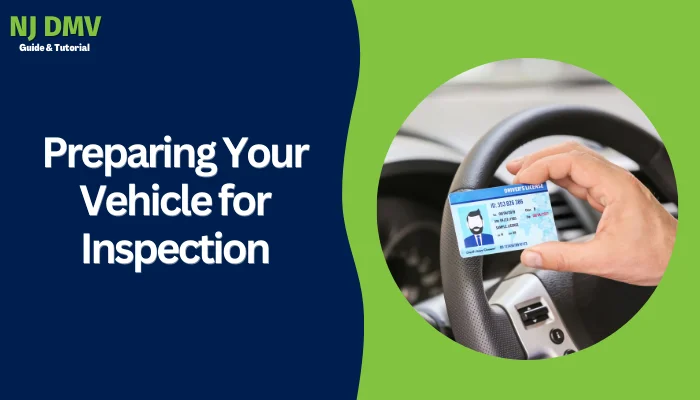The NJ DMV inspection stations across the state ensures that vehicles meet safety and emission requirements.

This article gives an exhaustive guide on NJ DMV inspection stations, containing every information you need and tips to make the inspection process smooth and hassle-free.

NJ DMV Inspection Stations: How to Find?
Knowing NJ vehicle inspection near me could save you some time and energy spent searching for it. Being aware of where you should go and what awaits will speed up this process for you.
Finding a Station
There are a number of methods to find NJ vehicle inspection near me. Some of them include:
- NJMVC Website: It gives a complete list of all the NJ DMV inspection stations, with their addresses and working hours.
- Google Maps: Simply typing “NJ vehicle inspection near me” in Google Maps will direct you to nearby inspection points.
- Mobile Apps: There are mobile apps that give detailed information about NJ DMV inspection stations, as well as consumer reviews on wait times.
It is crucial to check if they have appointments or if they operate at particular hours once you identify the station closest to you. First come first served basis is used by most stations; however, there may be some that may even allow for scheduled visits in order to manage traffic flow better.
Tips for a Smooth Visit
- Prepare Your Documents: Make sure to have your driver’s license, proof of insurance and vehicle registration ready.
- Check the Vehicle Requirements: Find out what will be inspected. Simple maintenance like oil change, tire rotation and brake checks can save you from unexpected failure.
- Visit During Off-Peak Hours: If possible try visiting early morning or mid-weekdays when there are less crowds at the inspection station, so that you do not wait long.
Inspecting your vehicle for possible problems before visiting the department of motor vehicles will significantly streamline the process and make it more convenient in terms of time.
What to Expect During the NJ DMV Inspection?
Understanding what goes on during inspections can help you prepare and avoid any hitches when taking your vehicle for testing.
The Inspection Process
The inspection at the New Jersey Division of Motorist Vehicles (NJ DMV) includes a complete systematic approach. Here is a list of what usually happens during an inspection:
- Registration: You will check in and leave your car papers as you arrive.
- Primary Check: Examiners visually examine the outer parts of your vehicle for apparent defects or damages.
- Emissions Test: It involves hooking up your car to a machine that measures how much pollution it emits. If followed by all means, this part guarantees that your automobile meets environmental standards in place.
- Safety Issues: Brake systems, lights, signals, steering mechanisms, tyres among others are some safety components that inspectors will scrutinize upon checking an automobile’s fitness for road use. Each one undergoes tests to prove its soundness and normal operation.
- Other Tests: Some other tests may be done depending on the age and type of vehicle including suspension testing; exhaust system testing; checks on other mechanical parts etc.
If all these parameters are satisfactory, you would receive an inspection sticker with a life span within which it remains valid while if any problem is detected during this exercise then they shall give you detailed reports indicating areas for improvement.
Common Reasons for Inspection Failure
- Faulty Emission Control Systems: One common Reason is emission related issues which cause failure at times during test.
- Worn-Out Tires: Tread conditions below minimums cause failures since wheels cannot grip well when roads are wet or snowy.
- Brake Issues: Brakes that are not functioning or lack sufficient brake pads are considered to be major safety hazards.
- Lighting Problems: Any failure of headlights, taillights or turning indicators causes a failure to pass the tests.
Familiarizing yourself with these steps will enable you to plan well and resolve any impending problems before your inspection date arrives thereby increasing your chances of passing on first trial at NJ DMV inspection stations.

Preparing Your Vehicle for Inspection
Preparation is the key to success, and taking your vehicle in top condition to New Jersey Motor Vehicle Commission (NJ MVC) can make save much time and energy.
Pre-Inspection Checklist
Full checklist includes:
- Check Engine Light: Ensure that the check engine light is not ON. If it is ON however, have it repaired immediately.
- Fluids: Check all fluids, including oil, coolant, brake fluid, and windshield washer fluid levels.
- Lights and Signals: All lights such as headlamps, tail lamps as well as turn signals must be tested to function properly especially during this examination period.
- Tires: Tire thread depth and pressure should be inspected. For those worn out replace them with new ones accordingly.
- Brakes: Make sure your brakes are operating normally with adequate pads still in them; there shouldn’t be any leaks within their lines as well.
- Windshield and Wipers: Examine whether there are cracks on the windshield pane then confirm if wipers are okay too.
- Exhaust System: Look out for some leaks or damages if any in the exhaust system.
Professional Tune-Up
Once in a while, it’s best to let the professionals do the job. A full tune-up from a reliable mechanic may be helpful. In this way, they can detect problems that might make your car fail the inspection.
Proper preparation is key for seamless inspection process. By following this checklist and getting professional tune-up you will ensure that your vehicle meets NJ DMV inspection stations requirements.
NJ DMV Inspection Station Locations and Hours
Knowing the locations and hours of operation of NJ DMV inspection stations will help you prepare your trip better.
Key Locations
NJ DMV inspection stations are distributed throughout the state to ensure that people have convenient access. Here are some notable locations:
- North Jersey: Newark, Paterson, Clifton.
- Central Jersey: Freehold, Eatontown, Flemington.
- South Jersey: Camden, Vineland, Salem.
These facilities work within designated time frames which may vary significantly so checking NJMVC site or calling ahead is important to make sure everything is fine before coming there.
Operating Hours
Most NJ DMV inspection stations open on weekdays from Monday to Friday between 8am and 4.30pm. Some stations may extend their working hours or open doors on Saturdays. The best days for visits would be mid-week and early morning hours in order not to spend hours waiting for a test.
Getting familiar with the locations and timing of NJ DMV inspection stations will enable you plan your trip better thereby reducing wait times and facilitating a smooth process of examination.
Tips for a Successful NJ DMV Inspection
Your first attempt at passing vehicle inspection should need little effort if well prepared. The following advice can help you succeed at NJ DMV inspection stations easily.
Effective Tips
- Regularly maintain your vehicles so as to avoid last minute inconveniences.
- Use an OBD-II scanner to check emissions before going through inspections.
- Inspect Lights: Ensure all exterior and interior lights are functional.
- Maintain Tires: Regularly check tire pressure and measure how deep the treads are.
- Document Readiness: Have all necessary papers ready before you go to the inspection station.
Common Pitfalls to Avoid
- Ignoring Warning Lights: Address any warning lights on your dashboard promptly.
- Overdue Maintenance: Skipping regular maintenance can lead to unexpected failures during the inspection.
- Procrastination: Don’t wait until the last minute to prepare for your inspection.
These tips can indeed help you pass NJ DMV inspection stations in one attempt.
The Benefits of Using NJ DMV Inspection Stations
Having your vehicle inspected at an NJ DMV inspection station comes with a number of benefits compared to other alternatives.
Key Benefits
- Professional Standards: State-run inspection stations adhere to rigid standards and regulations, thus providing a comprehensive and accurate examination of vehicles brought in their premises for that purpose.
- Cost-effective: It costs nothing than spending more money that could be used on private agencies for standard inspections under the purview of NJ DMV inspection stations or centers located across New Jersey state in United States of America (USA).
- Convenience: You can find an NJ vehicle inspection near me because it has many locations throughout the state where services are offered by them.
NJ DMV inspection stations guarantee compliance with state regulations and offer a cost-effective and reliable way of maintaining your vehicle in good shape.

How to Handle a Failed Inspection?
A failed inspection can be annoying; however, knowing the process and how to fix it will allow you to get back on the road faster.
Steps To Take After A Failed Inspection
- Review the Report: Go through the report carefully so that you understand why your car did not pass the test.
- Make Necessary Repairs: Deal with whatever issues have been noted in the report, which may mean visiting an auto shop or perhaps carrying out some do-it-yourself repairs where applicable depending on one’s level of expertise.
- Re-Inspection: After having repaired any faults identified during this examination, come back again at NJ DMV inspection station for re-inspection purpose. There should be no more failures as all problems must have been dealt with accordingly or properly so that they never occur repeatedly henceforth.
Tips for a Smooth Re-Inspection
- Double-Check Repairs: Before going back for re-inspections, make sure you have revisited all areas that required repair to ensure nothing was overlooked.
- Keep Documentation: Bring your original inspection report along with receipts as proof of having carried out repairs or any other form of documentations concerning repairs made since then unto present.
- Ask Questions: If you’re unsure about any part of the process, don’t hesitate to ask the inspection station staff for clarification.
By understanding why it happened and fixing it immediately, you would ensure your vehicle complies with NJ DMV inspection stations’ standards regarding automobiles’ safe operation requirements thereby enabling their legal registration within State boundaries.
FAQs
A lot of vehicle owners have queries about the process of inspection. In this article, we respond to some of these questions concerning DMV New Jersey inspection stations.
How often should I take my car for inspections in NJ?
The majority of vehicles in New Jersey are required to undergo biennial inspections. However, within the first five years of ownership, new cars are exempted from undergoing such tests.
What papers must I carry when I visit an inspection station?
Vehicle registration document, insurance proof and valid driver’s license will be necessary.
What occurs if an automobile fails during an examination?
If subjected to a test and found wanting, one will receive a report that contains all faulty areas. It is important for such issues to be addressed prior re-inspection.
Can I get my car inspected if it is registered in another state?
No, only vehicles registered here in New Jersey can be taken to New Jersey Division Of Motor Vehicles (NJ D.M.V.) offices for testing purposes.
It is important to know answers to frequently asked questions before visiting an NJ DMV inspection station.
Conclusion
NJ DMV inspection stations are essential for upholding vehicle safety and environmental standards. They provide a methodical and professional approach to guarantee that New Jersey’s roads are filled with safe cars in compliance with state regulations.
Simple things like knowing where the closest NJ vehicle inspection near me is or what to expect during an examination can make this whole process faster and less stressful.
Contents
- NJ DMV Inspection Stations: How to Find?
- What to Expect During the NJ DMV Inspection?
- Preparing Your Vehicle for Inspection
- NJ DMV Inspection Station Locations and Hours
- Tips for a Successful NJ DMV Inspection
- The Benefits of Using NJ DMV Inspection Stations
- How to Handle a Failed Inspection?
- FAQs
- Conclusion
